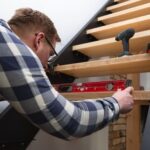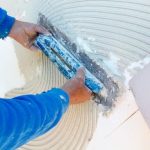Are you wondering who needs a home improvement license in Suffolk County? If so, you’re in the right place.
Whether you are a contractor looking to operate legally or a homeowner seeking reputable professionals for your next project, understanding the regulations surrounding home improvement licenses is crucial for both parties involved. In Suffolk County, obtaining and maintaining a home improvement license is not only a legal requirement but also serves as a mark of credibility and professionalism in the industry.
A home improvement license is a necessary credential for any individual or business that plans to perform construction, repair, remodeling, or other home improvement services within Suffolk County. This includes contractors, subcontractors, and anyone engaging in home improvement work for compensation. The purpose of this license is to regulate and standardize the quality of work to ensure the safety and satisfaction of homeowners.
Understanding who needs a home improvement license in Suffolk County is essential. By clearly defining the specific individuals or businesses required to have this license, it helps protect consumers from unlicensed operators who may not have the necessary qualifications or adhere to proper regulations. This article will provide clarity on the requirements and implications for those operating without the appropriate credentials in Suffolk County.
What Is a Home Improvement License
A home improvement license in Suffolk County is a legal requirement for anyone performing construction, repair, remodeling, or other home improvement work on residential properties. This license ensures that the individual or business has met certain standards and qualifications set forth by the county government. It serves as a way to protect consumers from unscrupulous contractors and provides a level of accountability for those working in the industry.
Definition and Purpose
A home improvement license is a permit issued by the Suffolk County Department of Consumer Affairs, which allows individuals or businesses to legally engage in home improvement work. This can include anything from plumbing and electrical work to general contracting and landscaping. The purpose of this license is to regulate the industry, ensuring that those performing such work have the necessary skills, knowledge, and insurance to protect both themselves and their clients.
Why It Is Necessary
Having a home improvement license is necessary not only because it is a legal requirement, but also because it provides peace of mind for homeowners. By hiring a licensed contractor, homeowners can trust that the work will be done to code, that all necessary permits will be obtained, and that any necessary inspections will be conducted. Additionally, it protects homeowners from liability in case of accidents or injuries that may occur during the course of the project.
Who Needs a Home Improvement License
In Suffolk County, a home improvement license is required for individuals or businesses that are involved in making improvements or renovations to residential properties. This includes contractors, subcontractors, and handyman services. The purpose of this requirement is to protect homeowners from unscrupulous individuals and to ensure that all work is performed by qualified professionals. Here are the specific individuals or businesses who need to have a home improvement license in Suffolk County:
- General Contractors: General contractors are responsible for overseeing construction projects and coordinating the work of various subcontractors. They must obtain a home improvement license in order to legally operate in Suffolk County.
- Subcontractors: Any individual or business hired by a general contractor to perform specific tasks on a construction project, such as plumbing, electrical work, or carpentry, must also have a home improvement license.
- Handyman Services: Even small-scale repair and renovation businesses must obtain a home improvement license if they are performing work on residential properties.
Failure to obtain the necessary home improvement license can result in serious consequences for both the individual or business performing the work and the property owner. Without a valid license, they may face legal action, fines, and difficulty obtaining insurance coverage. It is important for homeowners to verify that any contractor or service provider they hire holds a valid home improvement license before allowing them to work on their property.
Overall, the requirements surrounding home improvement licenses in Suffolk County serve to protect both contractors and homeowners. By ensuring that only qualified individuals and businesses are allowed to perform work on residential properties, the licensing process helps maintain high standards of craftsmanship and safety within the local housing market. For those seeking to undertake home improvement projects, it is essential to familiarize themselves with the licensing regulations and confirm that all necessary permits are in place before beginning any work.
Consequences of Not Having a Home Improvement License
Operating a home improvement business without the proper license in Suffolk County can have severe legal and financial consequences. Without a home improvement license, contractors and businesses can face penalties, fines, and even the suspension of their operations. Additionally, homeowners who hire unlicensed contractors risk being held liable for any accidents or damages that occur on their property. It is essential to understand the potential repercussions of not having a home improvement license to avoid legal trouble and financial loss.
Legal Repercussions
One of the most significant legal repercussions of operating without a home improvement license in Suffolk County is the potential for facing civil and criminal charges. Unlicensed contractors may be subject to lawsuits from dissatisfied clients who can claim subpar workmanship or incomplete projects. In cases where injury or property damage occurs due to unlicensed work, legal action can be taken against the contractor, exposing them to costly lawsuits and legal fees.
Another consequence of not having a home improvement license is the inability to file mechanic’s liens against non-paying clients. A mechanic’s lien provides contractors with legal protection if they are not paid for their services. However, without a proper license, individuals and businesses cannot avail themselves of this important legal recourse, leaving them vulnerable in cases of non-payment.
Financial Repercussions
In addition to legal troubles, operating without a home improvement license can result in significant financial setbacks. Homeowners are increasingly cautious about hiring unlicensed contractors due to concerns about liability and quality of work. As a result, unlicensed businesses may struggle to attract clients, ultimately leading to decreased revenue and profitability.
Furthermore, without proper licensing, businesses are ineligible for certain insurance policies that protect against workplace accidents and damages. This can leave them financially responsible for any mishaps that occur during construction or renovation projects. Additionally, without access to bonding opportunities reserved for licensed contractors in Suffolk County, unlicensed businesses may find it challenging to secure contracts for larger-scale projects.
Understanding these consequences highlights the importance of obtaining a home improvement license in Suffolk County. By adhering to local regulations and licensing requirements, contractors can protect themselves from legal issues and financial hardship while establishing credibility with potential clients.
How to Obtain a Home Improvement License
Obtaining a home improvement license in Suffolk County is a crucial step for contractors and businesses looking to legally operate within the jurisdiction. Here is a step-by-step guide on the application process and requirements for obtaining a home improvement license in Suffolk County:
1. Research the Requirements: Before applying for a home improvement license, it’s essential to familiarize yourself with the specific requirements set forth by Suffolk County. This may include having the necessary experience, insurance coverage, and bonding.
2. Complete the Application: Once you understand the requirements, you can proceed to complete the application for a home improvement license. The application will typically require detailed information about your business, including contact details, proof of insurance, and any relevant certifications or qualifications.
3. Submit Supporting Documents: Alongside your completed application form, you will need to submit additional supporting documents as required by Suffolk County. This may include proof of insurance, bonding information, professional certifications, and other relevant paperwork.
4. Pay the License Fee: After submitting your application and supporting documents, you will be required to pay the necessary licensing fee as mandated by Suffolk County. The amount of this fee may vary depending on the type of work you intend to perform and other factors.
By following these steps and meeting all necessary requirements, you can successfully obtain a home improvement license in Suffolk County and operate your business legally within the jurisdiction. It is important to ensure that all documentation is accurately completed and submitted in order to avoid any delays in processing your license application.
Benefits of Having a Home Improvement License
A home improvement license in Suffolk County offers numerous benefits for both contractors and homeowners. For contractors, having a valid license demonstrates their professionalism and commitment to quality work.
It also enables them to legally operate and advertise their services in the county, giving them a competitive edge in the market. Additionally, being licensed may open up more opportunities for contractors to take on larger and higher-paying projects, as many clients prefer working with licensed professionals for their peace of mind.
Homeowners also benefit from hiring licensed contractors for their home improvement projects. A licensed contractor is more likely to have the necessary skills, knowledge, and experience to complete the job to a high standard.
They are also more likely to carry liability insurance and provide warranties for their work, offering homeowners protection in case something goes wrong. Furthermore, when homeowners hire licensed contractors, they can rest assured that the work will comply with building codes and regulations, which is essential for ensuring the safety and structural integrity of their homes.
Overall, obtaining a home improvement license not only benefits individual contractors and homeowners but also contributes to raising industry standards and consumer protection. By promoting accountability and professionalism within the home improvement sector, licensing helps create a safer and more reliable environment for all parties involved in these projects.
Common Misconceptions About Home Improvement Licenses
There are several misconceptions surrounding home improvement licenses in Suffolk County that can lead to confusion and misinformation among contractors and homeowners. One common misconception is that only large-scale renovations or construction projects require a home improvement license. In reality, any individual or business that engages in home improvement work exceeding $200 must have a valid home improvement license from the Suffolk County Department of Consumer Affairs.
Another prevalent misconception is that obtaining a home improvement license is a complicated and time-consuming process. While there are specific requirements and paperwork involved, the application process for a home improvement license in Suffolk County is relatively straightforward. By familiarizing oneself with the necessary documentation and adhering to the county’s regulations, contractors and businesses can streamline the process of obtaining their license.
Additionally, some individuals mistakenly believe that they can operate without a home improvement license as long as they have general liability insurance. However, while insurance provides financial protection in the event of accidents or property damage, it does not replace the legal requirement of having a home improvement license. Operating without the proper licensure not only puts contractors at risk of fines and legal repercussions but also undermines their credibility and trustworthiness in the eyes of potential clients.
| Common Misconceptions | Truth |
|---|---|
| Only large-scale projects require a license | All projects exceeding $200 require a license |
| Obtaining a license is complicated | The process is straightforward if requirements are met |
| General liability insurance replaces the need for a license | Licensure is still required regardless of insurance coverage |
Resources for Further Information
In conclusion, obtaining a home improvement license in Suffolk County is not only a legal requirement but also an essential step for contractors and homeowners alike. By understanding the specific individuals or businesses who are required to have a home improvement license, one can avoid the potential consequences of operating without the proper license, such as legal and financial repercussions.
The application process and requirements for obtaining a home improvement license in Suffolk County have been outlined, providing a clear guide for those looking to comply with the regulations.
Having a home improvement license offers numerous benefits for both contractors and homeowners, including credibility, protection against fraud or subpar work, and access to certain projects that require licensed professionals. Furthermore, it is important to address any misconceptions surrounding home improvement licenses in Suffolk County and debunk them, as misinterpretations can lead to confusion and non-compliance with regulations.
For further information on home improvement licenses in Suffolk County, individuals can refer to the provided resources which include links and contact information for additional guidance. It is crucial to stay informed and up-to-date on licensing requirements to ensure that one is operating within the bounds of the law and maintaining high standards of professionalism in the home improvement industry.
Frequently Asked Questions
What Is the Law for Home Improvement in NY?
The law for home improvement in NY is governed by the New York State Department of Consumer Affairs (DCA). Home improvement contractors must register with the DCA and follow specific regulations related to contracts, payments, and disclosures to consumers.
These laws are designed to protect homeowners from unscrupulous practices and ensure that any work done on their homes meets certain standards.
Does a Handyman Need a License in NY?
In New York, a handyman does not need a license as long as they are only performing minor repairs and maintenance work. However, if a handyman is undertaking larger projects or specialized work such as plumbing or electrical tasks, they may be required to obtain the appropriate license or certification.
Who Needs a Contractor License in New York?
Those who need a contractor license in New York include anyone who wants to engage in construction work on residential or commercial properties exceeding $200. This includes general contractors, electricians, plumbers, and HVAC contractors.
To obtain a contractor license in New York, individuals must meet certain education and experience requirements, pass an exam, and maintain liability insurance. These regulations are in place to ensure that construction work is carried out by qualified professionals who can uphold industry standards and safety regulations.

I’m thrilled to have you here as a part of the Remodeling Top community. This is where my journey as an architect and remodeling enthusiast intersects with your passion for transforming houses into dream homes.





